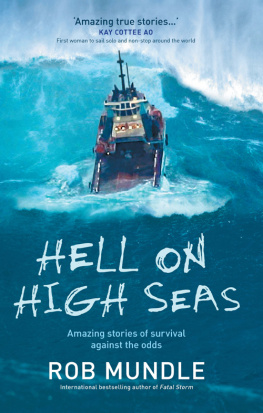This edition is published by Arcole Publishing www.pp-publishing.com
To join our mailing list for new titles or for issues with our books arcolepublishing@gmail.com
Or on Facebook
Text originally published in 1948 under the same title.
Arcole Publishing 2017, all rights reserved. No part of this publication may be reproduced, stored in a retrieval system or transmitted by any means, electrical, mechanical or otherwise without the written permission of the copyright holder.
Publishers Note
Although in most cases we have retained the Authors original spelling and grammar to authentically reproduce the work of the Author and the original intent of such material, some additional notes and clarifications have been added for the modern readers benefit.
We have also made every effort to include all maps and illustrations of the original edition the limitations of formatting do not allow of including larger maps, we will upload as many of these maps as possible.
PROCEED AT WILL
BY
BURKE WILKINSON
The Devil was sick,
the Devil a monk would be;
The Devil was well,
the devil a monk was he.
FRANOIS RABELAIS
PROLOGUE
THERE ARE, of course, many kinds of courage. There is the hot, blazing kind that carries a man away so that he kills forty or fifty of his kind and later, when the Medals of Honor are awarded, can only recall that he saw red and started shooting. There is the cold kind that measures the risks beforehand by slide rule and chartand then goes in and bombs a dam to high heaven or makes a low-level attack on a prison wall so condemned men may go free. There is the courage of those who know great fear and conquer it, and there isperhaps rarest of allthe courage of those to whom fear is alien.
But the mantle of heroism, coat of many dazzling colors that it is, may hide strange things beneath its folds. Because of some tremendous moment, the hero springs full grown into being. He may have been bully in school or coward in college, but all in his nature that runs counter to his glittering moment is ignored. At heart he may even be traitor and spy, but if he wears a bright ribbon or two on his tunic there are few if any to challenge him.
The World War just past brought a harvest of heroesand great villains toosome already forgotten, many never remembered because their deeds were stillborn from the vast dark womb of war. But the story of one man is still, I think, well worth the tellinga man who wore the cloak of courage with more skill and dash than any I ever knew.
The name of Geoffrey Mildmay may not be familiar to you because, at the time of his most spectacular undertaking, security was such that little could be said. You would have to go back to the Old Testament, to David and Goliath in fact, to find a parallel to his task. For Mildmay was the man who singlehanded went hunting for the German battleship Prinz von Blcher in her Brittany lair.
The day I determined to set down his story was the day in June of 1944 on which the Royal Navy ordered me to go in search of him. I had been summoned from London to the flagship of the Admiral commanding the Allied Expeditionary Force. The flagship was lying in Portsmouth Harbor. Once aboard her, I received my instructions from the Chief of Staff.
He was a Royal Navy Captain and he was under considerable tension. He showed it by clamping and unclamping his heavy jaw and by hitching at the heavy gold aiguillettes he wore. It seemed that his Admirals chiefat least in namewas about to come aboard the flagship in the person of His Britannic Majesty George VI.
Hence the Captains full-dress aiguillettes, and the expedition with which he handled me.
I believe you know Geoffrey Mildmay. He said it as fact, not question. He seemed remote, schoolmasterish.
I nodded. I knew Mildmayif anyone ever did!
We have reason to believe he is alive and in France.
I waited.
Your mission is to find him and bring him back for questioning. You will receive no written orders, simply my verbal Instructions and the proper credentials. You will report first to the Commander Captured Ports at Cherbourg. He spoke by rote and I knew now he functioned as transmitter only, spokesman for higher authority.
Your credentials, he went on, pushing a heavily sealed envelope in my direction, give you rather unusual powers for a civilianthere was scorn in the wordbut then the Admiral feels that this is a most unusual case. The lines about his mouth creased into deeper channels of disapproval. Obviously the Captain would never have himself selected a civilian, and an American at that, for this delicate assignment.
Call on our naval forces, or on the army, or in an extreme case on the French, if the need arises. I need hardly tell you that the least possible publicity is desirable in a matter of this kind. But publicity or no, bring Mildmay back.
I had a feeling he wanted to say dead or alive, but that would have sounded like melodrama and the Royal Navy did not indulge in melodrama. Besides, alive was the way I knew they wanted him.
We discussed the mechanics of my mission for a brief time.
In my opinion, said the Chief of Staff in conclusion, rising, there is something extremely irregular about this whole affair...but the pros and cons of it are scarcely within my province. You have your credentials, and my very good wishes of course as well....
We shook hands coolly enough and I left him adjusting his aiguillettes before the tall mirror set in the bulkhead of his cabin. The Kings launch was due any minute.
I threaded my way back to the main deck and clambered down the gangplank and aboard the cutter which was to take me to France. Soon Portsmouth Harbor was well behind us and within half an hour we were well out to sea.
A steady two-way flow of traffic filled my eyes where a few weeks before there had only been the narrow seas and the great question. For the English Channel was alive with crafttransports and mine sweepers, tugs and Libertiesheading for France and some returning. The transports carried many landing craft swinging from their davits like laundry hung out to dry.
The cutter plowed steadily along between her twin plumes of spray. I took up a position on her open bridge. The glinting banks of sea water had a lulling effect, releasing a spring in my mind. For once there was time to think. The weeks and the months and the years began to unwind from the tight spool in which they were imprisoned. Although I could not see what lay ahead down the rushing path of water, I could see quite clearly why this spool of time had been wound in the tight tense way it had. And even, for a moment, I glimpsed in the loosened threads how we could have actedBrenda Ashforth, Anne Harcourt and Iso that the skein might have been less twisted and less strange.
But most of all my thoughts centered on the man whom I had been sent to find, the man whose complex character had dominated every twist of the tangled skein.
Was Mildmay hero or something of a darker hue? His official record, loaded with citations, gives no real clue. The women he lovedall but onewere either too blinded by his presence or too bitter after he had left them to be fair judge. It was up to me, I decided, that day on the water, to set the facts on paper. But even I who knew him best can but record the sequence of events. For the final truth eludes me.











